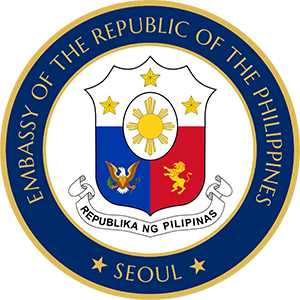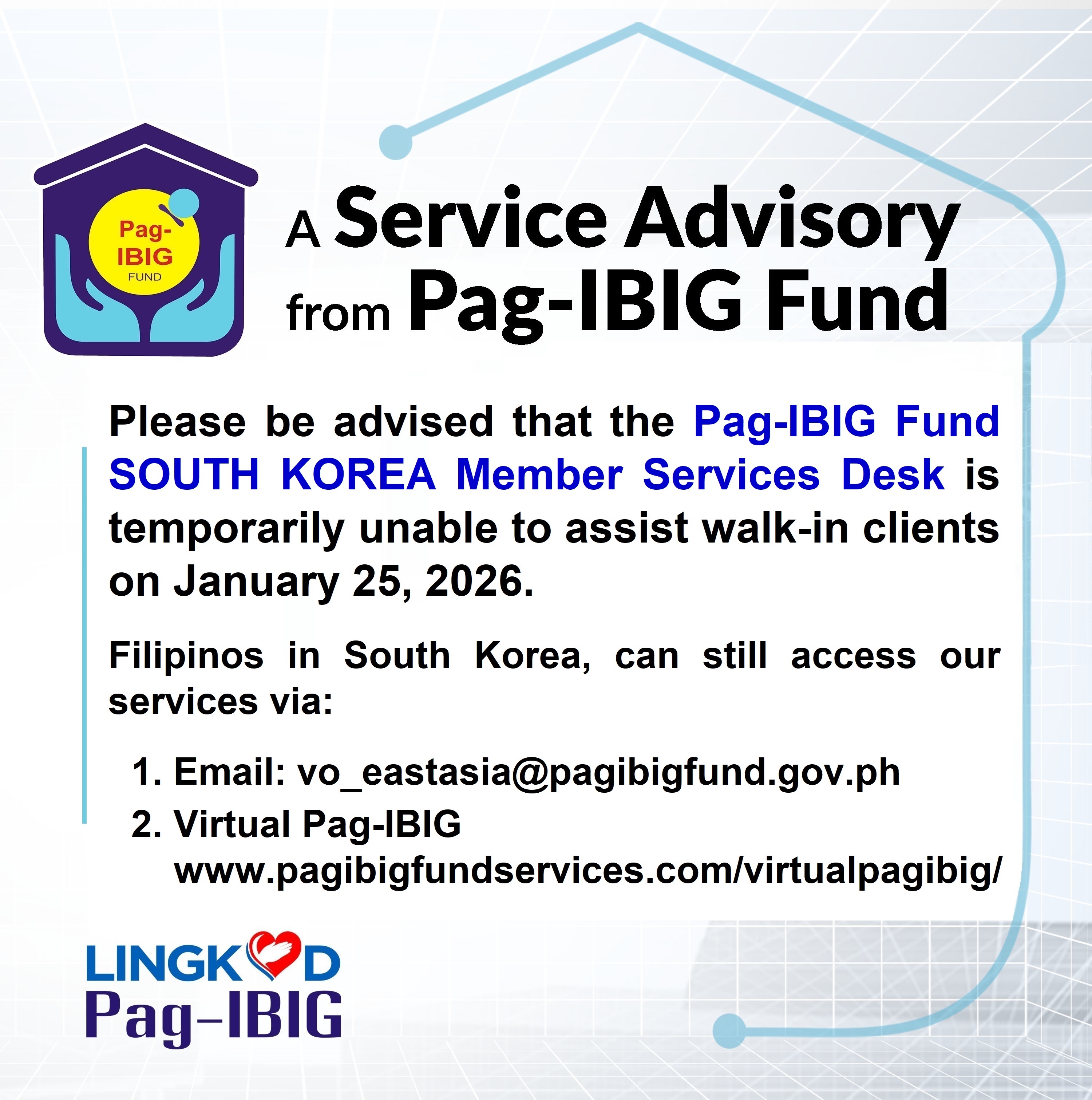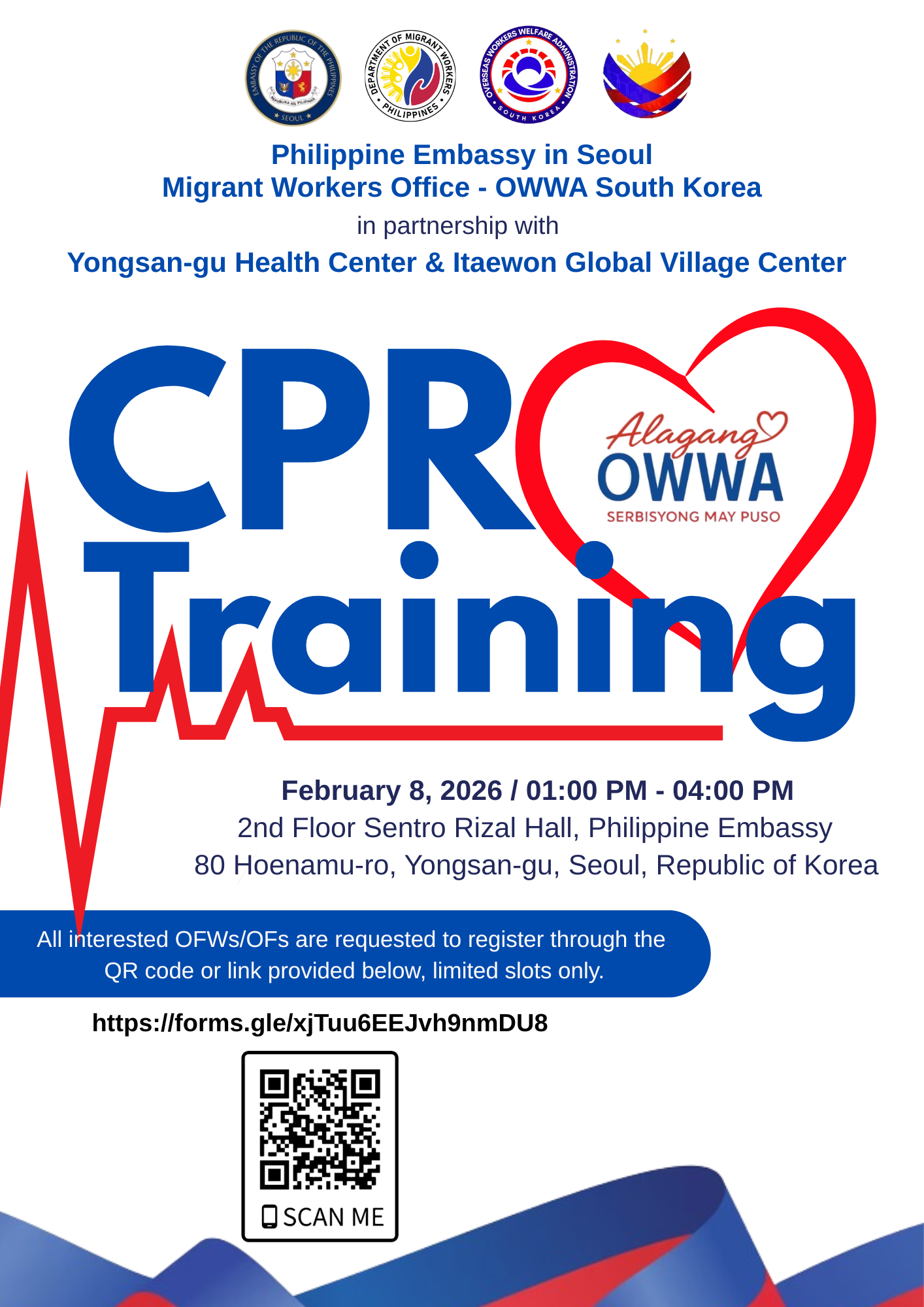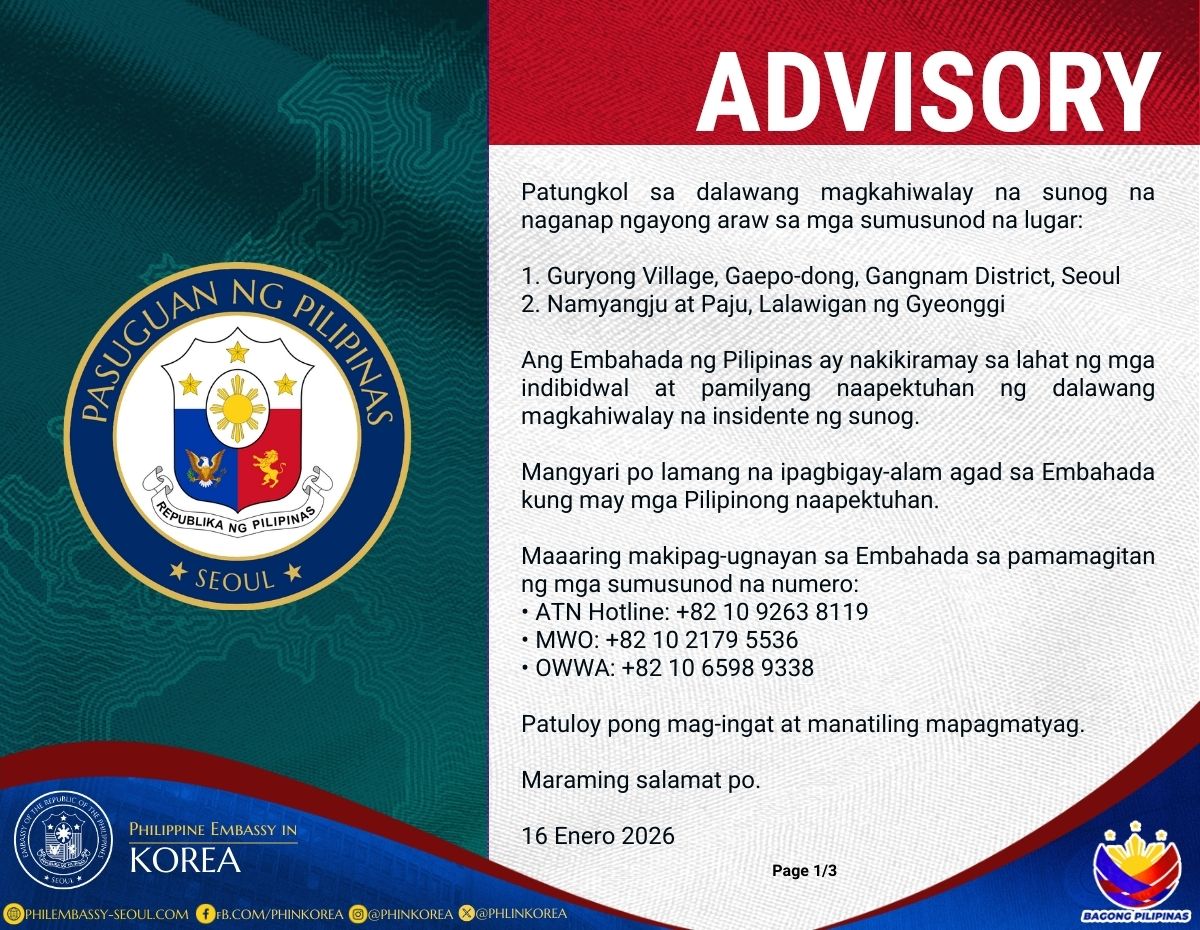Precaution Against Avian Influenza or Bird Flu
Personnel are strongly cautioned against handling dead birds – if you do handle a dead bird, immediately wash your hands thoroughly (15-20 seconds) with soap and water. Personnel should not have direct contact with wild birds in aviaries, zoos, parks or on the street (such as the street markets located throughout Korea). Personnel should avoid ponds or bodies of water containing ducks or other waterfowl, and they should not enter poultry farms, bird markets, processing plants, slaughter houses. Finally, personnel should not feed birds by hand, with bird feeders, or by any other method.
General safety precautions that will help protect from any potential infection with HPAI virus include:• Avoid eating uncooked or undercooked poultry or poultry products;
• Avoid all direct contact with poultry farms, birds markets, slaughter houses, or process plants;
• Avoid all contact with poultry being butchered for market or culled for safety purposes;
• Avoid contact with poultry, including eggs (no “runny†yolks) and poultry blood (no “pink†parts);
• Utilize proper hand hygiene practices by using soap and water for 15-20 seconds (or a waterless, alcohol-based hand sanitizing gel when soap is not available), especially when handling poultry or poultry products.
• Avoid contact with poultry and other birds suspected or known to be infected with HPAI virus;
• Cover the mouth and nose when coughing or sneezing;
• Get your flu shot today
• If your occupation involves picking up or handling dead birds, use appropriate personal protective equipment (PPE) when handling dead birds and ensure that your occupational health exam is current. PPE includes rubber/neoprene gloves (not latex surgical gloves) and safety goggles or a face shield for everyone in contact with dead birds, plus a paper or surgical mask if the bird is in a wet environment. In addition, when collecting 3 or more birds in close proximity outdoors or collecting one or more birds in confined indoor spaces, add a NIOSH-approved particulate respirator, N-95 or better, plus disposable gowns or coveralls or cleanable waders/raingear, and rubber boots or boot covers.
• Monitor your health within 10 days after any possible direct contact with wild birds or with uncooked or undercooked poultry; if you develop flu-like symptoms (fever, cough, sore throat and/or more muscle aches), shortness of breath, pneumonia (lung infection), diarrhea or eye infection.) See your healthcare provider immediately as these may be early symptoms of HPAI.
Source: USFK MEDICAL ADVISORY (22 May 2008)
2008 South Korean Avian Influenza Outbreak Update



 January 22, 2026
January 22, 2026
 January 22, 2026
January 22, 2026
 January 16, 2026
January 16, 2026
